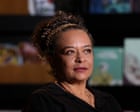
In a world that constantly presents both inspiring achievements and remarkable stories of resilience, two recent events stand out, offering a sense of hope and triumph. On one hand, Brazil welcomes its first Black woman, Ana Maria Gonçalves, into its prestigious literary academy, while on the other, the tale of Carolina Wilga, a German backpacker’s survival against the odds, unfolds in the dense Australian outback. Both narratives highlight the diversity of human experiences, from academic breakthroughs to life-saving endurance.
Ana Maria Gonçalves has risen to a celebrated position within the Brazilian Academy of Letters, marking a significant moment in the institution’s 128-year history. This victory is not just for Gonçalves but is also a moment of celebration for many writers, activists, literary scholars, and Brazilian society, including President Luiz Inácio Lula da Silva, who have expressed their elation at this remarkable achievement. The Academy, established in 1897 and modeled on the esteemed Académie Française, has long been a dominion of white men, making Gonçalves’ election a groundbreaking step towards greater inclusion and diversity in Brazilian literature.
Gonçalves, famed for her compelling work “Um defeito de cor,” has been recognized as one of Brazil’s most distinguished contemporary authors. Her election signals a progressive shift in the dynamics of literary recognition and mirrors broader societal changes in the appreciation and acceptance of diverse voices. This development resonates particularly in a nation where racial and cultural diversity plays a central role in shaping its social tapestry. It reflects a mindful recognition of talent and significance beyond historical biases and opens new avenues for future generations of diverse writers.
Meanwhile, in the vast wilderness of the Western Australian outback, an extraordinary story of resilience unfolded when Carolina Wilga, a 26-year-old German backpacker, found herself lost for eleven nights. With minimal resources, she adapted to survive the harsh conditions, relying on nature to guide her back to safety. Sheltering in a cave, living on scant provisions, and navigating by the sun, Wilga’s experience is a testament to the human spirit’s perseverance and adaptability in nature’s overwhelming expanse.
The journey was daunting, yet by what can only be described as “sheer luck,” Wilga eventually discovered a road. It was here that her hopes culminated in a fortunate encounter with a passing motorist, marking the end of her ordeal and the beginning of a safe return to civilization. Her remarkable survival story demonstrates the tenacity and hope that often sustain individuals through challenging and isolating experiences.
These narratives, while distinct in nature, illustrate the breadth of human achievement and endurance. Ana Maria Gonçalves’ ascendancy to the Brazilian literary academy celebrates a breakthrough in cultural and institutional barriers, while Carolina Wilga’s survival story underscores the remarkable human capacity for resilience amidst challenges. Both stories gently remind us of the diverse pathways through which individuals navigate and overcome the barriers and trials presented in life.
As readers, taking a moment to reflect on these stories encourages a deeper appreciation for both the accomplishments and struggles that color the human experience. These accounts of triumph and perseverance not only serve as intriguing narratives but also inspire a collective sense of hope and progression, embracing the transformative power of inclusivity and survival.
Source: {link}
